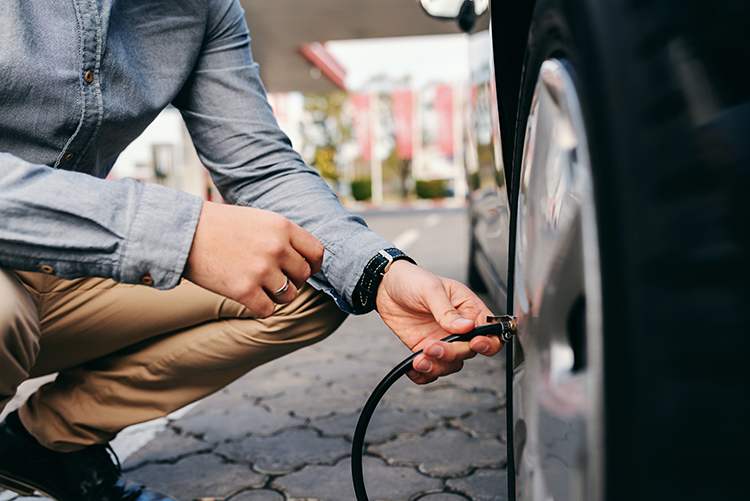Some Routine Checks for Smooth Driving
Your car gets you safely everywhere you want to go, but it requires that you take good care of it in order to keep running right. Taking care of your car is as important for keeping you on the road and getting where you want to go as it is for your safety. Some of these simple maintenance issues can actually result in an accident or injuries. Take the time for these 10 Basic Vehicle Maintenance checkups and avoid a potential accident or car insurance claim.
Wheels and Tires
Your Vehicle’s Tire Pressure: A tire pressure gauge is an affordable and easy to use tool that can prevent a flat tire or worse. Tires that are improperly inflated can cause blowouts that lead to accidents. They can also find you stranded on the side of the road. Additionally, the wrong level of inflation affects your fuel efficiency. It’s important to check them regularly and also be aware that the right tire pressure changes based on the outside temperature. Check with the tire manufacturer for the right pressure.
Your Brakes: Don’t wait for that screeching sound that tells you the brake pads are getting old. Having your brakes checked regularly by a pro keeps your car safe and on the road. You depend on your brakes to stop your car and prevent an accident, so don’t take them for granted. It’s best to have a pro check your brakes as part of regular maintenance.
Your Car’s Alignment: While you will probably notice if your alignment is getting bad, it’s a good idea to have it looked over regularly, as it impacts the way your car handles on the road. Get your alignment adjusted as needed to ensure your car will steer and react the way you want it to when you need to move quickly.
Your Tire Tread: It’s not just the pressure in your tires that matters. Your tires depend on the tread to give you traction on the road, and it’s especially important in slippery conditions. Look for signs of wear in your tires – and also look for any bulges or odd lumps that could indicate a problem. Low tread or bulges in the tires can cause slipping or a blowout on the road, and lead to an accident.
Fluids
Your Oil: The oil in your car keeps everything running smoothly, and your car can’t run without the right level of oil. You can check your oil level by yourself easily by simply pulling out the dipstick and seeing where the oil level is. You should take your car in for an oil change on a regular basis as recommended by your vehicle manufacturer or mechanic. Oil changes are one of the most basic car maintenance procedures, and checking your oil an easy way to catch leaks.
Your Transmission Fluid: Your transmission failing while driving is not something you ever want to experience. Make sure that the transmission fluid is always at a good level and is changed periodically to make sure your car can shift smoothly and keep you in control of the car at all times.
Your Antifreeze/Coolant: In up North winters, you need to make sure that you have enough antifreeze in your car to make sure it can run properly. Cold temperatures are hard on your car. For us here in the South, coolant is the important fluid to check on your car. It gets hot here and the warmer temperatures are lasting longer. Keeping your car running smoothly relies on the right levels of the fluids it needs.
Your Power Steering Fluid: If you have ever driven a car without power steering, then you know how important it is to check this fluid. Without it your power steering could fail, making it harder to control your car. Like your oil, you can check and refill this one yourself, so make it a part of your basic vehicle maintenance habit.
Airflow
Your Car’s Air Filter: A clogged air filter will cost you in fuel consumption, and it’s bad for the car as well. It costs very little to get it checked and replaced as needed, so make it a regular part of your car maintenance routine. Most places will check it for you when they change your oil free of charge.
Visibility
All of Your Lights: An important part of any basic vehicle maintenance. Having any of the lights on your car not functioning properly is dangerous. Be sure to check your turn signals, brake lights, reverse lights and of course your headlights on a regular basis. Although you are likely to catch a headlight that is out, you could easily miss a brake like or taillight that doesn’t function right. These things are vital to letting other vehicles know what you are doing or about to do – and preventing accidents. You could also get a ticket for having a light out, which could mean higher car insurance rates.
With these Basic Vehicle Maintenance tips you can keep your car in good running condition and it will keep you safe and in control on the road. It takes a short amount of time to check these important functions, but can save money, fuel — and even lives in the long run.










